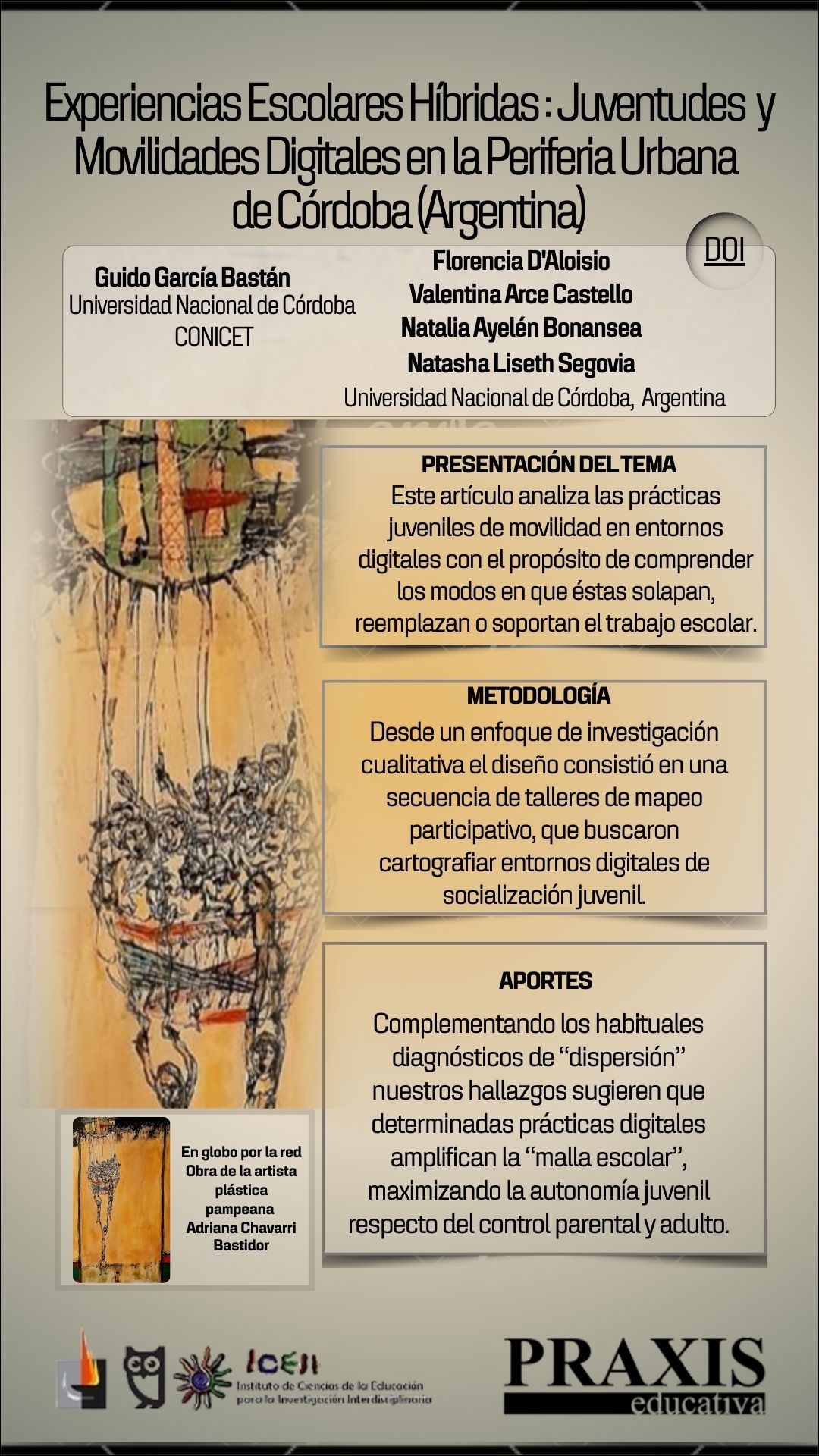Hybrid School Experiences: Youth and Digital Mobilities in the Urban Periphery of Córdoba (Argentina)
DOI:
https://doi.org/10.19137/praxiseducativa-2025-290314Keywords:
Youth, Mobilities, Digitalization, Secondary School, SchoolarityAbstract
Along with the digitalization of everyday life, social reality has become a intertwined web of face-to-face and digital interactions and mobilities, both intrinsically corporeal and digital. Despite technological access gaps, young people make ubiquitous use of ICT in all aspects of their lives. Building on the premises of the mobilities paradigm, and through participatory mapping workshops with high school students from the urban periphery of Córdoba, we analyze youth mobilities in digital environments. Specifically, the ways in which these mobilities overlap, replace, or support schoolwork. The findings suggest that digital mobilities may be mitigating some territorial limitations that are usually documented, and that certain digital environments and practices amplify the “school mesh”; maximizing youth autonomy in relation to parental and adult control. They also allow for a discussion of the prevailing diagnosis of “dispersion” and “zapping” in the literature on ICT use in schools
Downloads

Published
Issue
Section
License
Copyright (c) 2025 Guido García Bastán, Florencia D'Aloisio, Valentina Arce Castello, Natalia Ayelén Bonansea, Natasha Liseth Segovia

This work is licensed under a Creative Commons Attribution-NonCommercial-ShareAlike 4.0 International License.
Copyright Notice
Editorial Committee Educational Praxis Magazine:
I hereby declare that I am the author of the article titled (article name), that it is original and my own and that it was not previously published in any other format or medium. I declare to know that the magazine will not charge me any type of fee under any circumstances, nor will I receive any type of monetary compensation If it were accepted for publication in Educational Praxis, I authorize the aforementioned magazine to publish it digitally and to advertise it on its social networks.
If the work is published, I adhere to the Creative Commons license called "Attribution - Non-Commercial Share Alike CC BY-NC-SA", through which it is allowed to copy, reproduce, distribute, publicly communicate the work and generate derivative works, as long as when the original author is cited and acknowledged. This license has been used since September 2018. In 2016 CC BY NC ND 4.0 was adhered to; and in the years 2017 and 2018 (January-August) CC BY NC 4.0.
This CC BY-NC-SA Share Alike license does not, however, permit commercial use of the work. As an author, the journal may establish additional agreements for the non-exclusive distribution of the version of the work published in the journal, it allows me to self-archive the published articles, in their post-print version, in institutional, thematic repositories, personal web pages or any other relevant use. with the recognition of having been first published in this journal.
Educational Praxis adheres to DORA (Declaration on Research Assessment) signed in San Francisco, California, on December 16, 2012, and to the Declaration of Mexico (Joint Declaration LATINDEX - REDALYC - CLACSO - IBICT).














_(1)2.png)


3.png)











_(2).png)






2.jpg)









